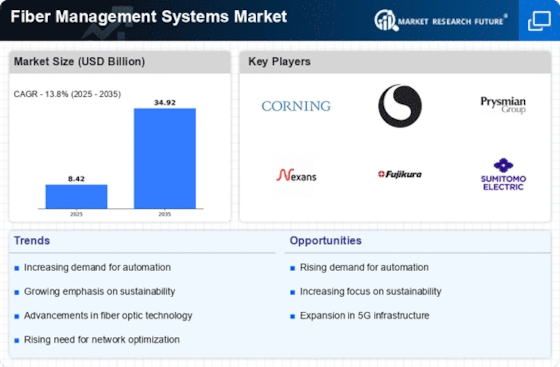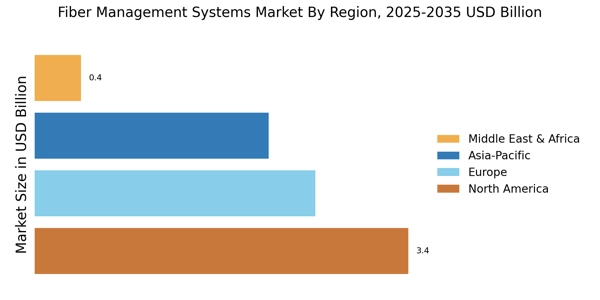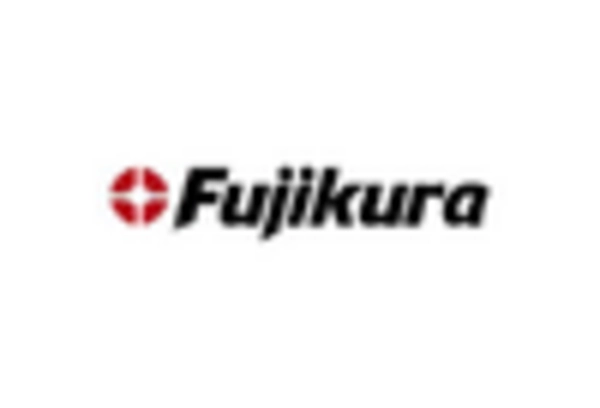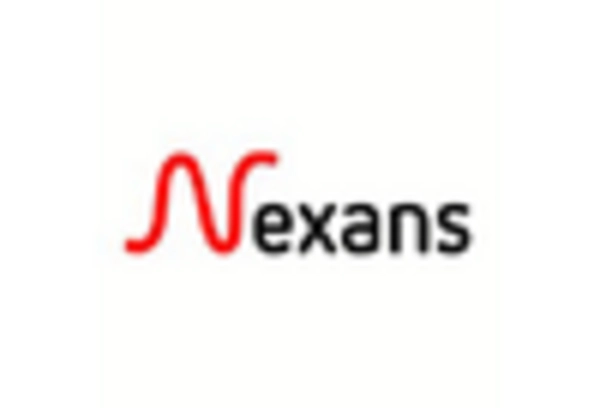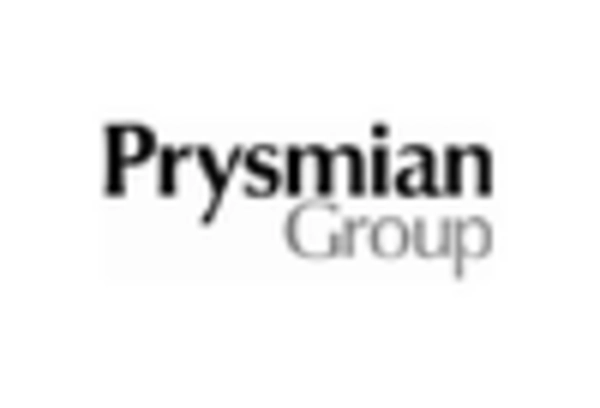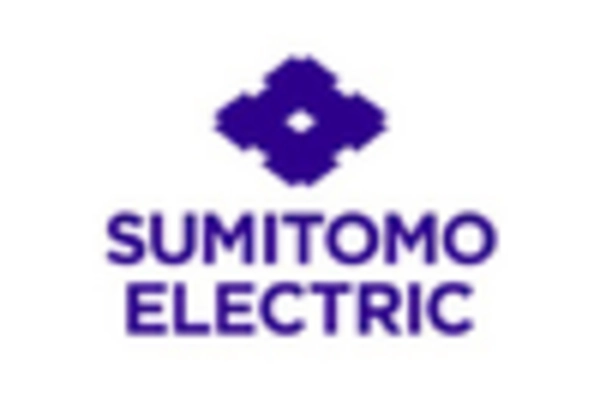Leading market players are investing heavily in research and development in order to expand their product lines, which will help the Fiber Management Systems Market, grow even more. Market participants are also undertaking a variety of strategic activities to expand their global footprint, with important market developments including new product launches, contractual agreements, mergers and acquisitions, higher investments, and collaboration with other organizations. To expand and survive in a competitive market climate, Fiber Management Systems Industry participants are offering cost-effective fiber management system solutions supported by advanced fiber network software. Manufacturing locally to minimize operational costs is one of the key business tactics used by manufacturers in the global Fiber Management Systems Industry to benefit clients and increase the market sector. In recent years, the Fiber Management Systems Industry has offered some of the most significant advantages to medicine. Major players in the Fiber Management Systems Market, including Corning Incorporated, HUBER+SUHNER, Panduit, Fujikura Ltd., Commscope, Hubbell, Belden Inc., Patchmanager B.V., Santron Electronics, RackOm System, and Leviton Manufacturing Co., Inc., are attempting to increase market demand by investing in research and development operations.Manufacturing and distributing electrical and optical connectivity systems and components for the communication, transportation, aerospace, defence, testing and measurement, and industrial end markets is the business of Huber& Suhner AG, situated in Switzerland. Its product line consists of passive components such cables, connectors, assemblies, and antennas, as well as radio frequency and microwave products, fiber-optic products with ultra-high data transfer speeds, databus, signal, and power cables, and low-frequency products.SYLFA HD, a fiber management system for clients who need a space-saving, structured cabling solution, will be released in May 2021 by HUBER+SUHNER, a business that provides a range of high-performance, creative fiber management solutions that thrive in varied conditions. With decades of experience, it knows that regardless of the size of the setting, speed, accessibility, and protection are crucial components for customers and shouldn't be compromised.Manufacturer and distributor of ceramics, speciality glasses, and related products, Corning Inc. The company sells ceramic substrates and filters for automotive and diesel applications, glass and plastic labware, serum, and equipment for drug discovery, as well as glass and plastic substrates that are used in LCD televisions, notebook computers, flat panel desktop monitors, and laptops. For the semiconductor, consumer electronics, aerospace and defence, optical, and telecommunications businesses, it also produces advanced optics and speciality glasses. The corporation conducts business in the Middle East, Africa, Europe, the Americas, and Asia-Pacific. Corning, New York, in the US, serves as the company's headquarters.Corning launched the EvolvTM Hardened Connectivity Solutions in February 2021. This collection of fiber management tools is designed to speed up the installation of fiber under challenging circumstances.

